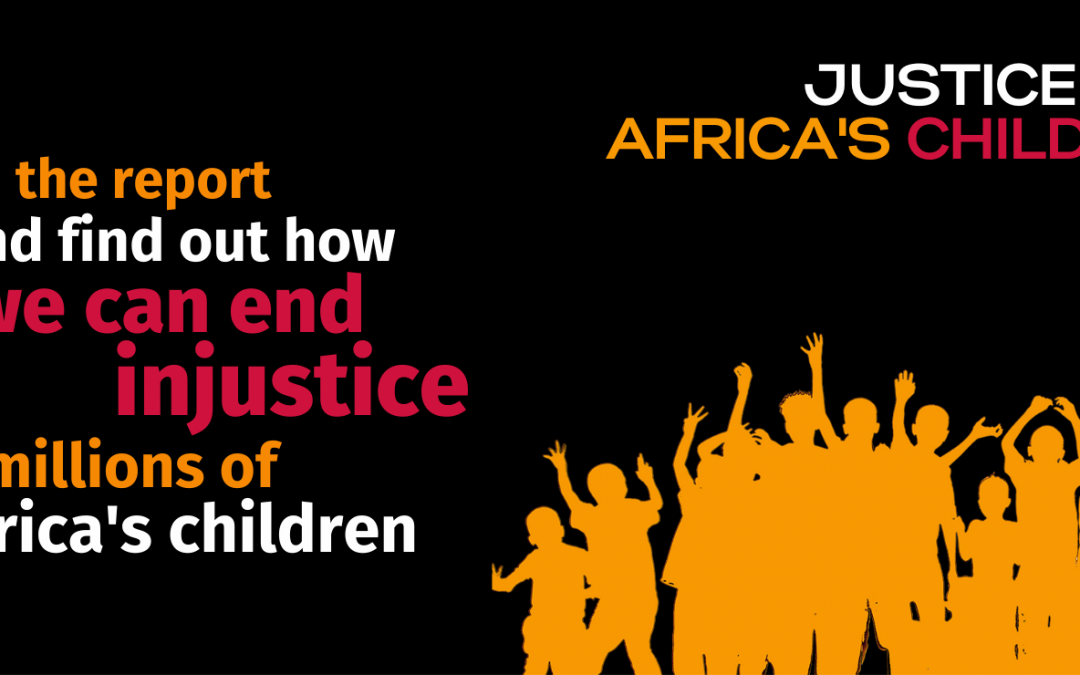At launch of ‘Justice for Africa’s Children’ report, leaders demand new investment in social protection and public services to end injustice for children in forced labour, hunger, and out of school
Child labour, children out of school, child hunger and malnutrition, and under-5 mortality are the costs of international injustices to Africa, but investments in targeted programmes including child-focused social protection could stop them in their tracks.
African and international leaders have launched a new report, Justice for Africa’s Children, which examines the human and financial cost of international and national injustices faced by Africa since the launch of the Sustainable Development Goals. The costs to Africa are almost $4 trillion in international injustices including lost tax and aid, and increases in child labour, children out of school, child malnutrition, and under-5 mortality.
African speakers at the virtual launch included 2011 Nobel Peace Laureate Leymah Gbowee, philanthropist Dr. Mo Ibrahim, WHO DG Dr. Tedros Adhanom Ghebreyesus, the Inter-Parliamentary Union’s SG Martin Chungong, the ILO’s Vera Paquete-Perdigao and All Africa Students’ Union SG, Peter Kwasie Kodjie, alongside former Prime Minister of Sweden, Stefan Lӧfven, and 2014 Nobel Peace Laureate Kailash Satyarthi. Mr. Satyarthi is the founder of Laureates and Leaders for Children, which hosted the launch with youth-led 100 Million.
The report calls for a global child benefit, which would provide social protection for all children and their mothers in every low-income country, at a cost $53 billion per year. This represents just 1.4% of the amount spent by high-income countries on their own national social protection schemes. Speaking about the benefit, Stefan Lӧfven said, “It would have a transformative impact on ending child labour, ending extreme poverty, and it would be a historic step for multilateralism. Global child benefit is an idea whose time has come.”
Further demands include increased financing for education, which could be achieved with the support of high-income countries if their share of ‘Special Drawing Rights’, released by the IMF in 2021 were reallocated; investment in school feeding programmes which target the poorest communities; and a foundation for justice for Africa, including African representation in global decision-making bodies such as the G20 and the OECD.
Speaking at the report launch, Kailash Satyarthi, stated: “Today we are challenging the age-old mindset of racial discrimination…The purpose of the Justice for Africa’s Children report is to awake the global consciousness. To create a strong demand and a strong voice across Africa. To make global leaders listen.”
Dr. Tedros Adhanom Ghebreyesus said, “Africa’s 650 million children are a generation with great potential, but as the report shows, far too many of them are being held back by grave social injustices… Investing in our children is an investment in our future, and in the Africa we all want to see. A healthier, safer, fairer Africa.”
Dr. Mo Ibrahim, whose foundation monitors governance on the continent, said,“$100 billion a year leaves Africa in illicit financial flows… That is more than twice the money needed to help our children. We ask Europe, the United States, how can we stop this? Where is their good governance to stop this theft?”
Nobel Laureate Leymah Gbowee raised the issue of unfair representation of African states in international decision-making spaces. “Why don’t we have Africa represented in the OECD? Even the conduct of the international organisations that are supposed to do justice in the world, we can see that they are not.”
All-Africa Students’ Union Secretary-General, Peter Kwasi Kodjie, echoed Ms. Gbowee’s sentiments. “It’s clear that the current order is unequal and biased. Leaders from developed countries preach equality from the pulpit yet they hold unequal power in the IMF, the OECD & other international organisations.”
Vera Paquete-Perdigao reiterated the warning provided by the International Labour Organization at the South African-hosted international child labour conference in 2021: “This is a wake up call. Africa has a fast-growing population: inaction could lead to 105 MILLION [African] children in child labour by 2025.”
Martin Chungong expressed that the IPU is advocating to change the status quo. “We see flagrant injustice being meted out to vulnerable groups in society. We need to act. The actions are simple, straightforward, and they are within the power of the legislative bodies in countries. It is time to bring justice to Africa’s children.
The launch event can be viewed here.

